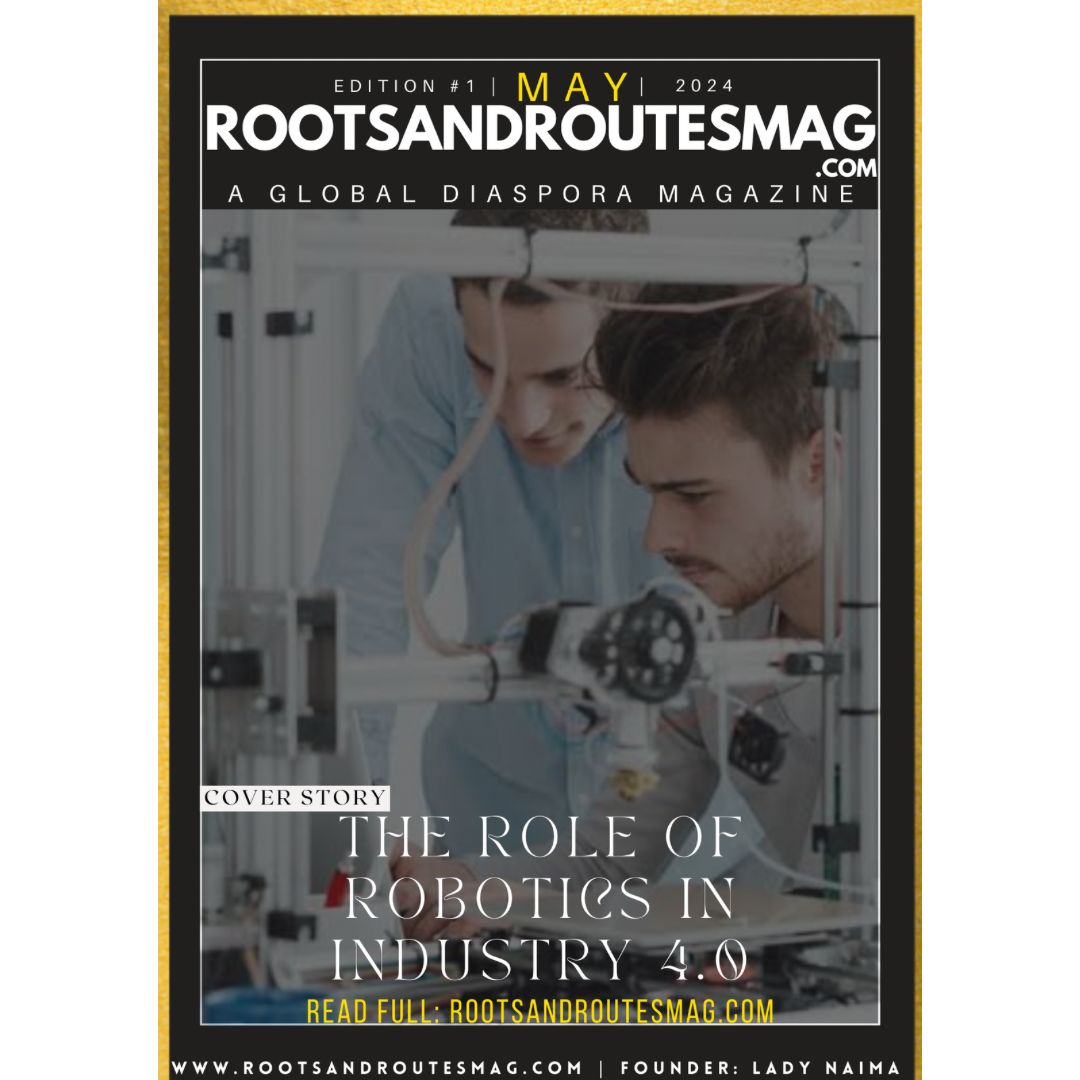The Role of Robotics in Industry 4.0

In the age of Industry 4.0, marked by the integration of digital technologies into industrial processes, robotics stands at the forefront of transformation. The marriage of robotics with advanced technologies like artificial intelligence, Internet of Things (IoT), and big data analytics is revolutionizing the industrial landscape. From manufacturing to logistics, robotics is reshaping how businesses operate, driving efficiency, precision, and innovation. Let’s delve into the profound role that robotics plays in the era of Industry 4.0.
Enhancing Efficiency and Productivity: One of the most significant impacts of robotics in Industry 4.0 is its ability to enhance efficiency and productivity across various sectors. Robots equipped with advanced sensors and AI algorithms can perform tasks with unparalleled precision and speed, reducing production times and minimizing errors. Whether it’s assembly lines in manufacturing plants or warehouses in logistics, robots are streamlining operations, resulting in higher output and lower costs.
Flexible Automation: Unlike traditional industrial robots confined to repetitive tasks in fixed locations, modern robotics offers flexibility in automation. Collaborative robots, or cobots, are designed to work alongside human workers, assisting them in tasks that require dexterity and adaptability. These cobots can be easily programmed and reconfigured to handle different tasks, making them ideal for small-batch production and agile manufacturing processes. Their ability to adapt to changing production demands ensures greater agility and responsiveness in Industry 4.0 environments.
Safety and Ergonomics: Robots are also playing a crucial role in improving workplace safety and ergonomics. By taking on hazardous or physically demanding tasks, they reduce the risk of accidents and injuries for human workers. Additionally, robots can be designed with ergonomic considerations in mind, minimizing repetitive strain injuries and improving overall worker well-being. In industries where safety is paramount, such as mining or construction, robotic systems equipped with advanced sensors and autonomous capabilities can operate in hazardous environments, keeping human workers out of harm’s way.
Data-Driven Decision Making: In Industry 4.0, data is king, and robotics serves as a valuable source of real-time information. Sensors embedded in robotic systems collect vast amounts of data on processes, performance, and environmental conditions. This data is then analyzed using advanced analytics techniques to identify patterns, optimize workflows, and predict maintenance needs. By leveraging this wealth of data, businesses can make informed decisions, optimize resource allocation, and continuously improve their operations.
Customization and Personalization: The rise of consumer demand for customized products is driving the need for flexible manufacturing solutions, and robotics is rising to the challenge. Advanced robotics systems equipped with AI and machine learning algorithms can adapt to produce customized products efficiently and cost-effectively. Whether it’s personalized consumer electronics or bespoke automotive components, robots enable mass customization without compromising on quality or efficiency. This ability to deliver personalized products at scale is revolutionizing traditional manufacturing paradigms and opening up new avenues for innovation.
Challenges and Considerations: While the role of robotics in Industry 4.0 is undeniably transformative, it is not without its challenges. Concerns surrounding job displacement and the ethical implications of automation loom large. However, it’s essential to recognize that robotics can augment human capabilities rather than replace them entirely. By focusing on upskilling and reskilling the workforce, businesses can harness the full potential of robotics while ensuring that human workers remain central to the industrial ecosystem.
Conclusion: As we navigate the complexities of Industry 4.0, robotics emerges as a cornerstone of innovation and progress. From enhancing efficiency and productivity to enabling flexible automation and personalized manufacturing, robotics is reshaping the industrial landscape in profound ways. Embracing the transformative power of robotics, businesses can unlock new opportunities for growth, competitiveness, and sustainability in the era of Industry 4.0.

Tariq Riaz is a passionate web developer and content generation expert.









